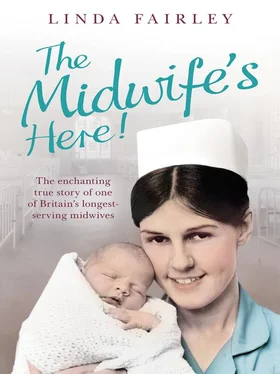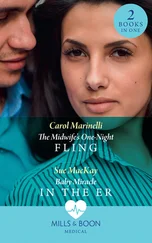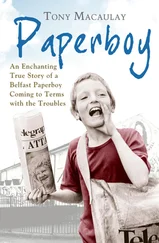1 ...7 8 9 11 12 13 ...16 ‘That’s my little nurse!’ Graham said encouragingly.
‘I’m a bit worried about Sister Bridie, though,’ I admitted. ‘She’s Irish and a spinster, so I hear, and she seems terribly strict and bossy.’
‘Don’t fret. You were worried about the Matron to begin with,’ Graham reminded me, ‘and I’ve hardly heard you mention her since.’
‘That’s true,’ I said thoughtfully. ‘I guess I’ve learned that Miss Morgan leaves you alone as long as you keep your head, and your skirt length, down!’
‘Glad to hear it,’ he smiled.
‘Besides, you always know when Matron is on the warpath, as word spreads like Chinese whispers. “Matron’s coming, pass it on,” we say, and usually the entire ward is on best behaviour before she has set foot through the main doors.’
Sister Bridie worried me more, I realised. ‘I’ll be seeing her on a daily basis on the surgical ward, come what may. I’ve heard she used to be on the men’s cardiac ward, and she shouted so loudly at the student nurses that she nearly gave the patients another heart attack.’
Graham laughed and I joined in, seeing through his eyes how funny this was. He was a marvellous help to me. Despite the camaraderie I shared with Linda and the other girls and the endless encouragement offered by my mum on the phone and on my occasional weekend visits home, it was Graham who kept me going, always willing to drive up to the hospital two or even three times a week to see me and let me unload about my day.
Sometimes I cried in his arms as we huddled together in the hospital car park, because I was tired out and I missed him and my home so much. Graham always provided a good reason for me to keep my chin up and carry on. ‘Think how you’ll feel when you’re a qualified SRN,’ he would say. ‘We’ll be able to get married and get a place of our own! You’ve come this far. You can do it, Linda. I’m so proud of you. You were made for this job.’
Now he commented: ‘I can’t imagine you giving Sister Bridie any reason whatsoever to shout at you.’
I hoped he was right, and his words helped set my mind at ease a little. All I had to do was obey orders and work hard, and I had nothing to fear. ‘What doesn’t kill me will make me stronger,’ I thought.
Graham also used to chat to me about events in the news and life outside the hospital, which helped to put things in perspective. I was so wrapped up in my own life I hardly ever took time to read a newspaper. Sometimes I didn’t even breathe fresh air for days on end, as the nurses’ home was attached to the main hospital by a covered walkway. Graham was my reality check, my link to the outside world.
‘Life is full of ups and downs, Linda,’ he said. ‘You have to take the rough with the smooth. Look at it like this. One minute the country is on a huge high, ruling the world with the football. The next, something terrible happens, like the Aberfan disaster. That’s life.’
It was just a few months since England had won the World Cup in the summer of 1966. I’m not a football fan, but I remembered Graham proudly telling me that Geoff Hurst, our hat-trick-scoring striker, was a local man who had been born in Ashton. Then in October the terrible Aberfan tragedy had united the country in the most dreadful grief. More than 100 children perished in that Welsh village when a slag heap collapsed on their school.
Life can be very cruel, and plenty of people had it a lot harder than me; that was an absolute certainty. In the big scheme of things, Sister Bridie’s harsh tongue was scarcely a hardship, and I resolved to do my very best under her watchful eye.
The night before my placement on the surgical ward began I noted in my diary that, thanks to my gentle introduction to basic nursing at the eye unit, as well as Graham’s words of wisdom and encouragement, I was feeling much more settled, and my confidence was slowly building.
The hospital and nurses’ home are now very familiar, and the strict regimes bring a sense of order and security, which I find comforting. Graham hasn’t actually ever proposed to me properly, but I like it when he suggests we’ll get married one day, and settle down. I would like that very much. I have learned that I prize security over uncertainty, and I want to pass my exams and qualify, because then my future will be set.
‘Lawton, attend to Mrs Roache in bed thirteen,’ Sister Bridie repeated impatiently, even though I was already picking up the notes to obey the order.
‘Yes, Sister,’ I said politely, giving her a nod. ‘Right away, Sister.’
I thought about being strong and making Graham proud as I strode to the far end of the surgical ward. I didn’t want to make any mistakes here. Sister Bridie had split purple veins etched across her grey complexion. Her silver hair was wrapped in a tight bun and a single white whisker protruded from a stone-like mole on her chin. She was as round and squat as a concrete mixer, and when she barked orders it felt as if she was spitting gravel at me. Sister Bridie was not a person I wanted to cross.
I hadn’t been prepared for the strong smell on the surgical ward, like nothing I’d ever encountered before. It clung in the air, and I found myself trying to take short, shallow breaths through my nose so as not to experience the full stench. Breathing like that made me tense my neck, and I could feel my starched white collar tighten around my throat, making me slightly light-headed. I remembered Janice telling us how she had embarrassed herself by gagging violently in front of the patients when she had to collect used bedpans on her first placement, but this smell was different and at first I couldn’t identify it.
I could hear trolleys rattling hurriedly past, Sister Bridie pebbling other nurses with orders and the unmistakable, upsetting sound of ladies crying out in pain. Against this background noise, all I could think about was the inescapable smell sticking to every pore on my skin. It made me clench my insides, to try and stop the smell getting through to me.
Mrs Roache was lying on her back with her right leg in traction. She had been hit by a speeding car as she crossed the Stretford Road in Hulme to collect her pension, and her thigh bone was very badly smashed. The old lady was on powerful drugs to help her cope with the considerable pain. Her leg had been dressed and strapped into what I recognised as a Thomas splint, which ran from beneath her pelvis right down to her ankle. Poor soul, I thought. She looked a sorry sight, propped up on top of her bedclothes, her blue-rinsed hair still matted into an ugly gash in her scalp.
‘How are you, Mrs Roache?’ I smiled as I approached her bedside. She was a generously proportioned lady who gamely attempted a smile, but her pain got the better of her. ‘Been better, t’ be honest, Nurse,’ she struggled. ‘Can I have some more p-p-painkillers?’ She winced as she squeezed her lips together to suppress a moan.
‘That’s why I’m here,’ I soothed. ‘You’re ready for your next dose. If you’ll just allow me to help you tilt your head, I’ll pass you a fresh glass of water.’
I offered words of encouragement as she eagerly placed the two pellet-like pills in her mouth and swallowed them down in one tremendous gulp. I had learned that it is not uncommon for patients to be sick after taking painkilling drugs, and I had brought a vomit bowl with me, which I was holding in my hand.
‘They should start to work quite quickly …’ I began, but I was promptly silenced by the sight of Mrs Roache simultaneously retching and lurching towards me.
I froze and looked on in helpless horror as she valiantly aimed for the metal bowl but missed it completely. Instead, she vomited right the way down my arm, splattering the sleeve of my uniform, my cuff and my bare forearm simultaneously. The sight and smell of her vomit, not to mention the warm feel of it clinging to my skin, made my own insides churn. As Mrs Roache was sick again, this time directly into the metal bowl I’d let drop beside her, I threw up the contents of my own stomach right into the same receptacle.
Читать дальше












